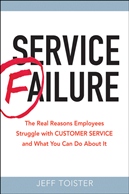 One of the things I love about baseball is there is a statistic for almost everything. Some of them are actually useful. A few would even be good for the business world.
One of the things I love about baseball is there is a statistic for almost everything. Some of them are actually useful. A few would even be good for the business world.
Many organizations are still using the same boring categories on performance evaluations. Does a subjective evaluation of an employee's job knowledge, teamwork, or dependability really tell us what someone is adding to the bottom line?
I'd like to see us evolve a bit and borrow a few stats from baseball. The following comparisons make a pretty good argument, I think. Some of you may accuse me of being biased towards my favorite players and teams. Fortunately, I have stats to back me up!
Experience (Job Knowledge)
A lot of long-term employees get a free pass when we evaluate their talent because they've been with the organization so long. If baseball players were evaluated solely on experience, Philadelphia Phillies pitcher Jamie Moyer would be the best. He has 23 years of Major League experience and is still pitching competitively at age 47.
But what if we used a more objective criteria, such as Earned Run Average or ERA? ERA is a measure of how many runs a pitcher allows per game, based on factors he can control. Giving up home runs, doubles, and walks will hurt a pitcher's ERA. A run that scores because someone else on the team made an error doesn't count against the pitcher's ERA. The better the ERA, the more likely it is the team will win. In the business world, we might translate that into productivity.
This season, Jamie Moyer a 4.43 ERA. That's pretty good, but San Francisco Giants pitcher Tim Lincecum has an ERA of only 2.86. Despite having only 4 years of experience to Moyer's 23, Lincecum has won the last two National League Cy Young Awards, given annually to the best pitcher in the league. That's two more Cy Young Awards than Jamie Moyer has won in his career. Lincecum's $9,000,000 salary in 2010 is also similar to Moyer's $8,000,000 salary. Moyer is a good pitcher, but Lincecum is clearly better.
Teamwork
We want our employees to be likeable and supportive of other members of the team, but this isn't the best gauge of what someone adds to the organization. If we evaluated baseball players solely on teamwork, we might pick New York Yankees shortstop Derek Jeter as the best player. He is universally regarded as the consumate teammate. Jeter even won the 2009 Roberto Clemente Award, which is given to the player who best demonstrates commitment to their community and performance on the field.
What if we evaluated an employee's contributions to the team based on more objective criteria? In baseball, a new stat has emerged called "Ultimate Zone Rating". This judges the number of runs a defensive player prevents from scoring compared to the typical person at his position. Shortstop is primarily a defensive position, so you'd naturally want a shortstop who helped his team by being really good at preventing runs from scoring. In the business world, we might translate this into a measure of quality.
Derek Jeter's current Ultimate Zone Rating is -.2, which means he is allowing .2 more runs to score than the average shortstop. Jeter's 2010 salary of $22,600,000 might be okay for the consumate team player, but it's hard to justify for someone whose work is of such poor quality. Especially compared to Boston Red Sox shortstop Marco Scutaro. Scutaro's 3.8 Ultimate Zone Rating means that he prevents 4 more runs over a season than Derek Jeter. And, Scutaro's practically a bargain at only $5,500,000 in annual salary.
Dependability
Showing up on a regular basis and getting your work done on time should be a minimum standard, not a criteria for evaluating outstanding employees. Milwaukee Brewer's firstbaseman Prince Fielder is currently the most dependable player in baseball. He has played in more than 250 consecutive games. That's the business world equivalent of coming to work every day for two years without calling in sick or taking a vacation day.
What if we instead evaluated employees based on their contributions compared to what the average employee on the job market could do? In baseball, this is called Value Over Replacement Player, or VORP. This statistic measures how many wins a player contributes to his team per season compared to the average player at his position. The business equivalent would be asking, "Is this employee the best we can get at this rate of pay?" Or, "Could we get a much better employee for less money?"
Prince Fielder's current VORP is 1.7. Not bad, but not nearly as good as San Diego Padres firstbaseman Adrian Gonzalez, whose VORP of 3.5 is among the best in the league. This means that the Milwaukee Brewers would win two more games this year if Gonzalez was their firstbaseman, not Prince Fielder. That could mean the difference between making the playoffs or an early end to the season. Gonzalez is also a bargain at a 2010 salary of $4,875,000 compared to Fielder's salary of $11,000,000.
Conclusions
Experience, teamwork, and dependability didn't yield terrible players in my baseball example. They were all good, albeit a bit expensive. My argument is productivity, quality, and value over replacement employee will generally give you a better idea of what employees are contributing. Over the long run, this means a better team at a more reasonable rate of pay.
What baseball stats would you like to see in the business world? How about from other sports?
 Jeff Toister
Jeff Toister  Wednesday, July 14, 2010 at 8:31AM |
Wednesday, July 14, 2010 at 8:31AM | 




